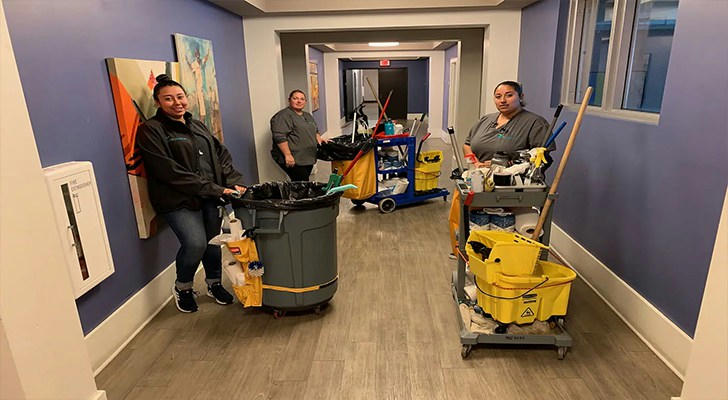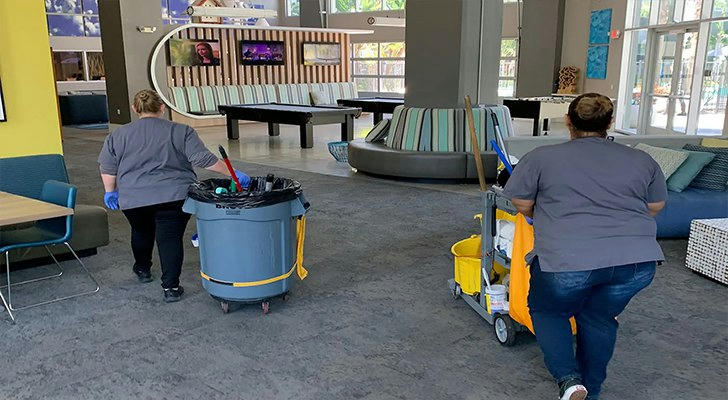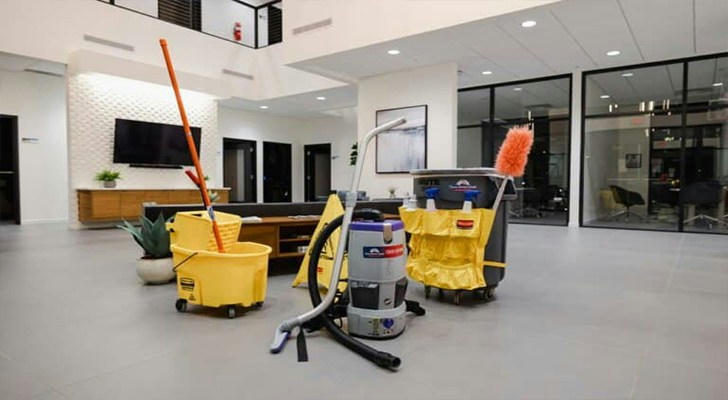🧼 The Science Behind Hotel Cleaning Jobs: Why They're More Important Than You Think
In the world of hospitality, there’s a job that quietly holds everything together—hotel cleaning. While it might seem simple on the surface, the role of a hotel cleaner combines practical skills, physical science, and even a bit of psychology. It’s not just about making beds or vacuuming carpets. It’s about ensuring hygiene, safety, and comfort through well-organized routines and scientific principles.
This article breaks down what hotel cleaners really do, how their work impacts guest health and satisfaction, and why these jobs offer surprising flexibility and long-term benefits.

🧽 The Invisible Science of Cleanliness
Hotel cleaners are on the front lines of hygiene. Their daily work involves more than just tidying up. It includes disinfecting surfaces to kill germs, managing waste to prevent the spread of bacteria, and using cleaning agents that break down dirt at a microscopic level. Many cleaners are trained to follow sanitation protocols that are backed by health science, especially after the global awareness raised by COVID-19.
What’s fascinating is that cleaning involves understanding how bacteria behave. For instance, high-touch areas like door handles, remote controls, and bathroom fixtures are often hotspots for microbes. Cleaners learn to sanitize these areas thoroughly, using disinfectants that destroy the structure of viruses and bacteria.
Their goal? To create a safe space for every guest—one that’s visually clean and scientifically hygienic.
🕒 Flexible Hours, But a Demanding Rhythm
A typical day for a hotel cleaner might start early in the morning or late in the afternoon, depending on the shift. The work can be physically demanding—bending, lifting, and standing for long periods—but many people appreciate the job's flexible nature.
Hotels often offer different types of shifts:
Morning shifts: Ideal for early risers who like finishing work before noon.
Afternoon shifts: Great for those who prefer slower mornings.
Weekend shifts: A good option for those balancing school or another job during the week.
The ability to choose shifts makes this role popular among students, parents, and part-time workers. Some hotels even allow employees to switch between part-time and full-time roles depending on life changes.
💵 Wages and Opportunities: What Does the Data Say?
Wages for hotel cleaners vary by location, experience, and the hotel’s reputation. On average, hourly wages are competitive with other entry-level service jobs. Some hotels even offer performance bonuses or regular raises for consistent, high-quality work.
The U.S. Bureau of Labor Statistics notes that building cleaning jobs, including hotel housekeeping, are expected to grow steadily, with thousands of new positions opening each year.
What’s more, hotel cleaners aren’t stuck in one role forever. With training and good performance, many cleaners go on to become housekeeping supervisors, managers, or even move into front-desk and guest services roles.
🏥 Beyond Pay: The Hidden Benefits of the Job
Many people are surprised to learn that hotel cleaners often receive benefits similar to office jobs. These can include:

Health Insurance: Including dental and vision plans.
Paid Time Off: For vacations, sick days, or personal time.
Retirement Savings Plans: Like 401(k) contributions from the employer.
Travel Discounts: Employees often receive hotel room discounts at partner chains.
These benefits contribute to financial security, wellness, and long-term job satisfaction. It shows that cleaning jobs, often overlooked, can provide not only stability but also peace of mind.
🤝 Teamwork and Morale: A Social Side to the Job
Working as a hotel cleaner also means being part of a team. A well-run housekeeping team relies on coordination, communication, and trust. Many people who work in this field describe it as a tight-knit community, where colleagues support each other and develop strong bonds.
Research in organizational psychology shows that team environments improve job satisfaction and reduce burnout. Cleaners often share tips, solve problems together, and celebrate accomplishments. It’s not just a job—it’s a collaborative effort that contributes directly to guest happiness.
📚 Learning and Training: Science Meets Skill
Cleaning jobs might not require a college degree, but they do involve training that blends hands-on practice with safety science. New employees learn:
How to use chemicals safely.
Which materials require special treatment.
Ergonomic techniques to prevent injury.
Standard protocols for hygiene and sanitation.
Many hotels provide short courses and ongoing education to keep staff updated on best practices. Some even offer certificates that help workers qualify for promotions or higher-paying jobs in the industry.
👟 Who Can Apply?
Hotel cleaning roles are generally open to people of all backgrounds. The main requirements are:

Physical stamina (you’ll be on your feet a lot).
Attention to detail.
A positive, team-oriented attitude.
Experience is a plus, but not necessary. Many hotels provide on-the-job training, making this a strong entry point for people new to the workforce or those re-entering after a break.
Applications are usually done online via the hotel’s career page or job boards like Indeed and LinkedIn. Interviews are typically brief and focus on reliability, attitude, and availability.
🔬 Final Thoughts: More Than Meets the Eye
Hotel cleaning is a profession grounded in science, precision, and human care. While it may not always be glamorous, it plays a crucial role in keeping people safe, comfortable, and happy while they travel. And behind the scenes, cleaners are applying knowledge, skill, and heart every single day.
So, next time you check into a sparkling hotel room, remember—it didn’t get that way by accident. It’s the result of careful work, smart processes, and a team of people who take their job seriously.
Whether you’re curious about the science of cleaning or considering a career change, hotel cleaning offers more than meets the eye—and might just be a smart step into a stable, rewarding field.
